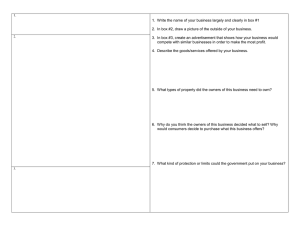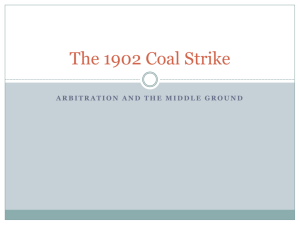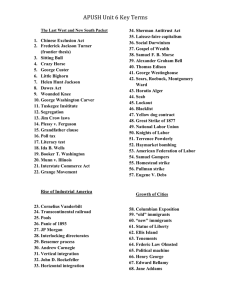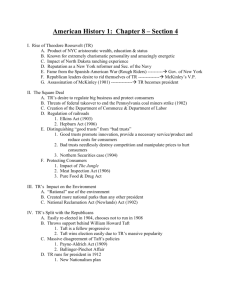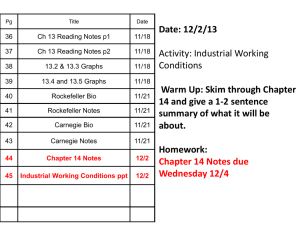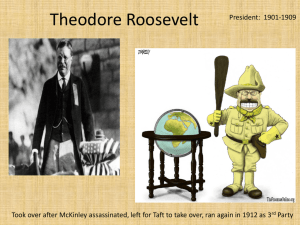Teddy Roosevelt
advertisement
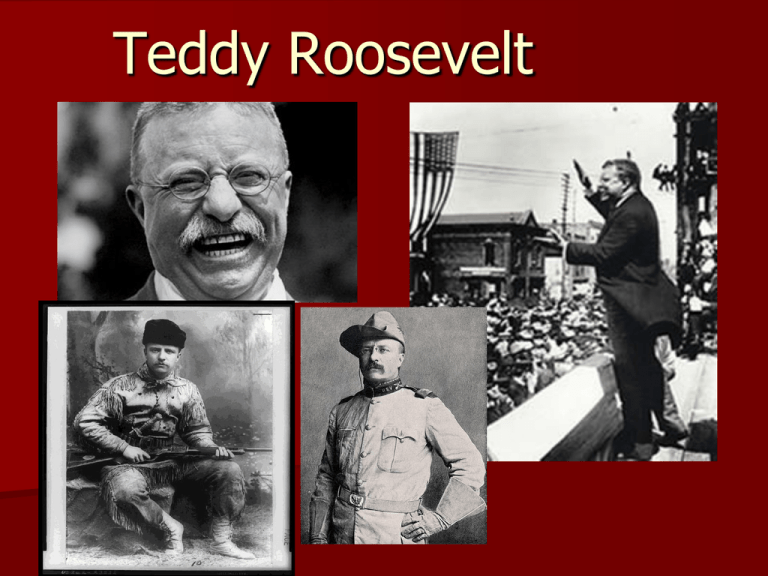
Teddy Roosevelt Early Life Born into a well-to-do family of Dutch heritage in New York. Was sickly as a youth, but through sports built himself up. Went to Harvard and then Columbia Law School. Unlike many people of the upper class at the time (who thought of politics as vulgar), TR went into politics. Gained national fame as the leader of “the Rough Riders” in Cuba during the SpanishAmerican War. Was then elected as governor of New York in 1898. He was a Republican. TR and the Rough Riders Was chosen to run as Vice-President when William McKinley ran for re-election in 1900 (McKinley’s 1st VP had died). Became President in 1901 when McKinley was assassinated. As President Pres. 1901-1908. His approach to the Presidency reflected his personality—he was very active. TR saw the presidency as a “bully pulpit” to preach his ideas. His speeches used strong progressive language, but in practice, was more moderate (He became more radical in his views towards business as time went on). Policies Towards Business TR gained fame as a “trust buster” when he ordered his attorney general to file antitrust legislation (as put forth by the Sherman antitrust act) against J.P. Morgan’s Northern Securities Company. TR, However, generally favored government regulation and business cooperation rather than antitrust. More Views on Big Business Admired the “efficiency” of the trusts. Thus thought they needed to be regulated rather than broken up. Thought that there were “good” trusts and “bad” trusts. TR’s Slogans When he tried to run for Pres. In 1912, his new, more radical, policies were called the “New Nationalism.” He was fond of using the word “bully.” Protecting Consumers He was President when Upton Sinclair published The Jungle. He then got the Meat Inspection Act passed. He also signed into law the Pure Food and Drug Act (both in 1906). Created the Food and Drug Administration. Regulating the Railroads Strengthened the Interstate Commerce Commission (ICC). Regulated RR’s rates and outlawed rebates. TR and Conservation From his time in South Dakota, TR gained an appreciation of nature. As President, he added 150 million acres to national forests and 5 new national parks. He also limited the amount of lumber on national land. He named his friend, Gifford Pinchot, head of the US Forrest Service. TR and John Muir in Yellowstone. Dealing with Labor The Anthracite Coal Strike In 1902 the United Mine Workers (UMW) went on strike. At the time, coal was the main source of heat. The UMW wanted a 20% raise and an 8-hour workday. They also wanted the mine owners to recognize their union. The owners refused and the strike went on for almost 6months. TR Intervened and settled the strike. (got the 2-sides to accept arbitration.) The mine workers got a 10% raise (which the owners passed on to consumers by raising their prices) and a 9hour workday. The mine owners didn’t have to recognize the union. 1st time a president had not been solely on the side of business owners. This helped TR win election in 1904. Review Explain TR’s attitude towards the trusts. Why did he prefer regulation to breaking-up trusts? What did TR use the Interstate Commerce Commission to regulate? Why is TR considered a conservationist? What two acts that protected consumers were passed when TR was president?
